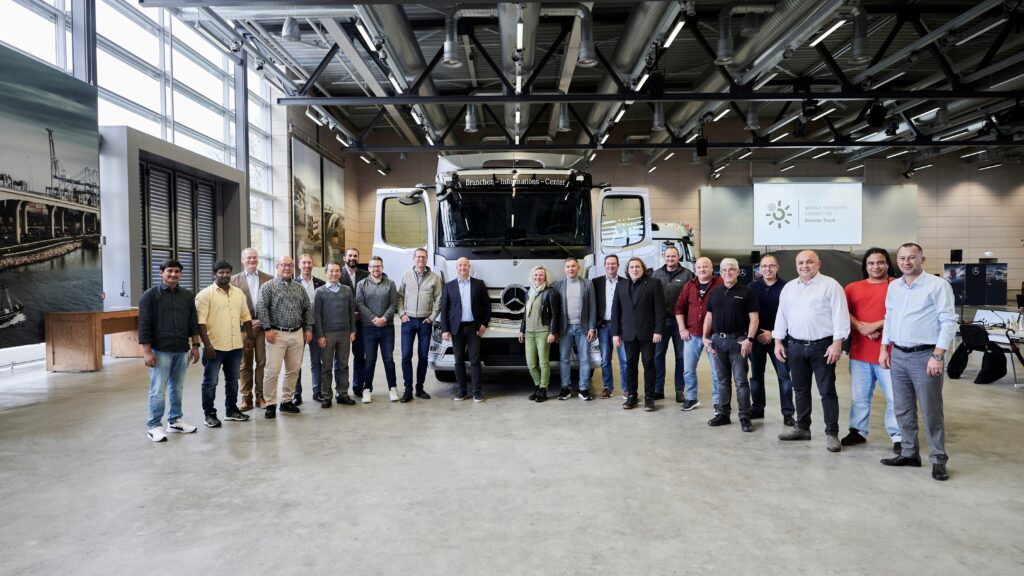5 December, 2022During a two-day meeting in Germany, union representatives from Daimler Truck operations around the world agreed to increase cooperation on human and trade union rights, and standing up for a fair, cross-continental transition towards an emission-free future.
The conclusions were reached by members of the newly constituted European Works Council and the World Employee Committee (EWC/WEC) at a two-day meeting at the Mercedes-Benz plant in Woerth, Germany.
“The newly established body, in cooperation with IndustriALL Global Union and industriAll European Trade Union, provides a strong platform to enforce workers' rights up to smallest suppliers of Daimler Truck and to protect human rights in the supply chain as a whole,”
says Michael Brecht, chairman of the General Works Council of Daimler Truck and EWC/WEC chairman.
The EWC/WEC represents the interests of all employees at Daimler Truck Group worldwide. Currently, 23 countries are in the body based on the number of employees, with a total of 34 representatives. The EWC/WEC is headed by a chairperson and a vice chairperson elected by the members. A six-member presidium is responsible for coordinating European affairs. Global issues are coordinated by an executive committee consisting of four members.
“We have created a EWC at Daimler Truck, which applies to the global world of Daimler Truck. As a result, countries outside the European Union have the same rights and obligations as those of the EU to which the EWC guideline directly applies. From our point of view, this is outstanding and of the greatest international relevance with regards to the enforcement of human and trade union rights,”
says Ralf Goetz, IG Metall.
Meeting participants discussed supply chain constraints and the resulting limited production with consequences on economic figures and employment. Delegates were concerned about high inflation and, in some cases, sharp increases in energy prices. Representatives from countries with lower income levels demanded compensation for employees to ensure a basic standard of living.
Participants expressed a need for information on new investments, the future production programme, especially for zero-emission vehicles, and the possible impact on employment. According to Michael Brecht, a subsidy race is emerging for new technologies, fuelled by the USA and China, while the European Union currently has little to oppose.
Human rights and obstacles to union work was an important topic on the agenda.
“We should use the increased attention to human rights due diligence to promote workers' and union rights, because workers' rights are human rights. We must make sure there are no obstacles to the fundamental rights to join a union and to bargain collectively, especially in countries where this regularly happens, like Turkey, Thailand, the US and some countries in North Africa,”
says Geort Leutert, IndustriALL auto director.
“Germany’s new supply chain due diligence act will come into force in January and a legislative process is underway in the European Union to improve the protection of human rights and victim protection in third countries. With the EWC/WEC, we as worker representatives at Daimler Truck, are well prepared. In addition, we can represent the interests of employees in solidarity across national borders,”
says Joerg Lorz, member of the General Works Council and vice chairman of the Group Works Council.
The General Works Council (GWC) of Daimler Truck AG represents the interests of more than 33,000 employees in Germany. The GWC makes general works agreements with company management, which then apply to the entire workforce of Daimler Truck AG. The body consists of 13 members who are elected for four years. The basis for this is the Works Constitution Act.
The central concern of the GWC is the preservation and expansion of jobs and the creation of good and fair working conditions. The GWC also takes a stand on the design of framework conditions that go beyond everyday business life, as well as on political and social issues.


